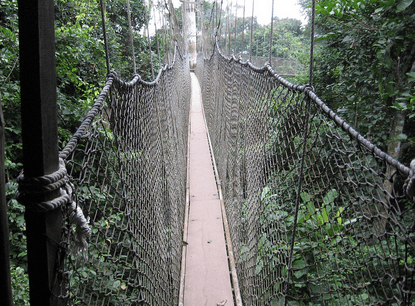United States partners Ghana to improve tourism sector
 The United States government has collaborated with some tourism sector stakeholders to enhance the capacity of operators in the hospitality industry in Ghana with the aim of increasing tourism outflow in the country.
The United States government has collaborated with some tourism sector stakeholders to enhance the capacity of operators in the hospitality industry in Ghana with the aim of increasing tourism outflow in the country.
Mr Daniel Fennell, the Counselor for the Public Affairs Department of the United States embassy in Ghana said in an interview with the Ghana News Agency (GNA) at the sidelines of the maiden Tourism Booster seminar that his country was committed to developing the tourism industry in Ghana.
The Tourism Booster Seminar was organised by Nasoa Services Limited, an event management company in partnership with the Ghana Tourism Authority, the Ghana Tourism Federation, the Musician Union of Ghana and with sponsorship from the United States of America.
Mr Fennell said inasmuch as the American embassy had an interest in ensuring strong political institutions in Ghana, it also had the commitment of ensuring that the economy of Ghana was robust for mutual benefits.
He said the strong economy of Ghana would be a benefit to both Ghanaians and the United States as a trade partner, adding that tourism could be exploited to contribute even larger to the Gross Domestic Product of Ghana.
Mr Fennell said the United States anticipated that its citizens were those who were going to be the largest group of international tourists to benefit from the tourism facilities in the country and therefore supporting the event was in a right direction.
He said “we have a keen interest here, in making West Africa stable and prosperous because we take that in our interest as well” adding that the collaboration was going to give them a mutual benefit.
On his part, Mr Akwasi Agyemang the Chief Executive Officer of the Ghana Tourism Authority said they were happy about the initiative saying “I am happy this training is being led by the private sector.
Mr Agyeman said: “Tourism is primarily a private sector driven initiative because hotels, restaurants, attraction sites are owned by the private sector and so if the private sector takes up that proactive step, then it behooves on us as an authority to support them.”
He said it was a good collaborative programme and that it tackled two of the core mandates of the authority in building capacity as well as providing collaboration and partnership opportunities within the industry.
Ms Nana Serwaa Osbourne, the Director of Nasoa service said the event sought to build the capacity of various operators in the Ghanaian tourism industry to enhance the service delivery.
According to her, the training had taken place in Elmina, Kumasi and finally in Accra drawing people from the hotel industry, car rentals, tour guides, chefs and stakeholders all over the regions in attendance to help them create a synergy in the value chain of the tourism industry.
Ms Osbourne said this training would become an annual event to help raise the standard of the Ghanaian tourism industry.
In an interview with the GNA, Ms Anna Berrera, a Sustainable Tourism and hospitality Services consultant, who co-facilitated the training said, “Ghana has a robust hospitality industry but there are not enough tourism packages that brings together, the types of attraction seen across the country.”
Ms Berrera said there was the need to intensify the packaging of tourism products saying, “tourism is one of the many opportunities for development that competes with a lot of other export industries and so often it is not the number one priority”.
She said in Ghana, where the government’s budget allocated only one per cent to the industry’s development, it was prudent for the private sector to be organised to meet government half way.
On his part, Mr Yuri Horowitz, a tourism partner and a co-facilitator said the training helped the participants to understand the trend in the industry that tourist now want experiential tourism.
Mr Horowitz said the training also sought to help them appreciate how the individuals in the value chain could work together to achieve a common goal of marketing the industry appropriately.
Source: GNA
